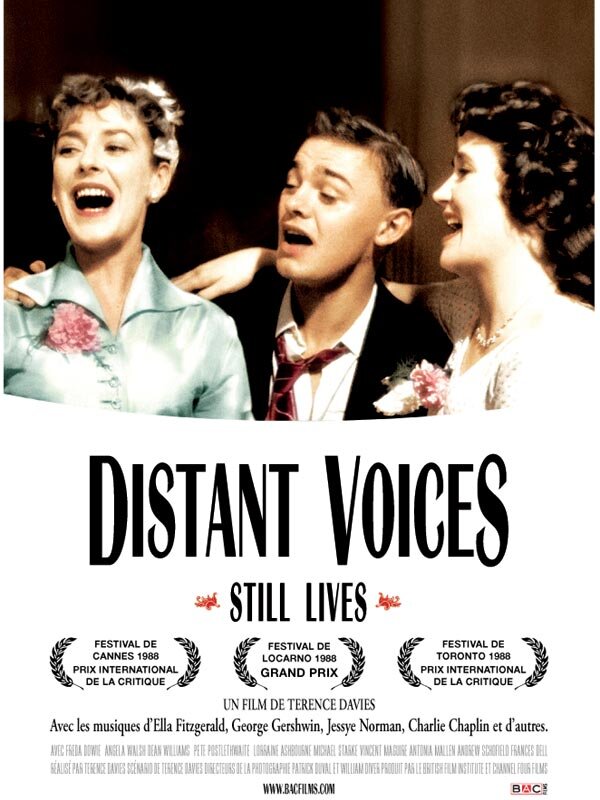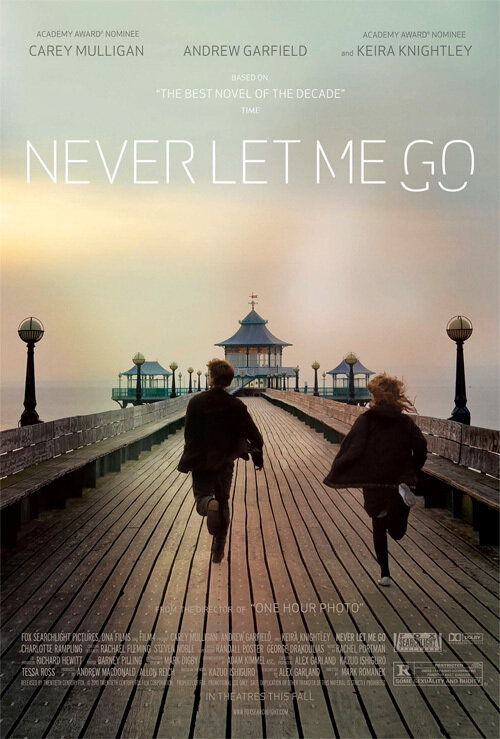By now you’re probably getting to the bottom of your list of HBO series and Netflix movies, so I’ve put together a special selection of recommendations. The theme: films that weave music into the fabric of the story, without merely relegating it to the background or making it the prime subject, as in musicals.
These are as well some of the best films that I’ve seen over the years, and that I don’t think would have worked without its music.The list is in alphabetical order (only to shirk the responsibility of having to rank them). It is perhaps missing some obvious mentions but here’s the definitive, twice-vetted, double-blind, organic, non-GMO, grain-fed, Blue Riband list of some very musical lists that aren’t musicals. (Click on film titles for link to trailers.)
Birdman (2014, USA) — Music by Antonio Sanchez — I’ve just watched Alejandro Inarritu’s Biutiful (2010)—a cathartically depressing film—so I’ve got the Mexican director on my mind. There isn’t anything quite like his 2014 Birdman, which won the Oscars for best picture. It’s hard to pin down the genre it falls under: comedy? drama? comedrama? It had the pacing of a comedy and the ambition of an era-defining thriller. That is succeeds as either a comedy or drama owes to its unconventional soundtrack: a mixture of classical pieces (excerpts from three symphonies) and solo jazz percussion, performed by Sanchez. Sanchez’s performance at times breaks the usual fourth wall of soundtracks, wherein what sounds like non-diegetic music is revealed, via camerawork, as existing in the same space as the main character’s frazzled perception of reality.
Distant Voices, Still Lives (1988, UK) — Various Composers — I’ve avoided orienting this list on a scale of 1-10, but if I had to pick a #1, it would be this film. It’s the gold-standard of how much music you can get away with in a film without having the whole thing devolve into a sing-along. Nevertheless you’re more likely to sing along with its characters the second or third time you watch it. ‘In memory, everything happens to music,’ is the film’s tagline (a quote that I refer to perhaps too frequently on this blog) and a very apt motto for the kaleidoscope of memories that the autobiographical work revolves around. Its soundtrack also made for a great folksy playlist.
Fellini's Casanova (1976, Italy) — Music by Nino Rota — The two people, aside from Fellini, most responsible for the irresistible and timeless power of the films of Federico Fellini, are in my opinion: Giulietta Masina and Nino Rota. The former was his wife and an awesomely powerful presence on screen; the latter was a composer whose music was a claw that grabbed you in your innermost feels and were, at times, criminally catchy. He’s also the mind behind Casanova’s deranged theme song, a fitting accompaniment to what is truly one of the wildest, most unhinged things I’ve ever seen on a screen.
La Strada (1954, Italy) — Music by Nino Rota — The trumpet theme that the main character Gelsomina (Masina) plays in this tragedy set in post-war Italy, is the kind of music that can’t be recalled without also recalling the feeling of existential isolation that you feel when you first hear it. It’s Masina at her best, Fellini at his most devious, and Rota in his heartbreaking element.
La Vie En Rose (2007, France) — Music by Christopher Gunning — How much of the decision to include this film in this list is based on my determination to keep Les Fabuleux Destin D’Amelie Poulain off of it (and still maintain the quota of French films in any worthwhile film-list)? We’ll never know. That aside, this is the only film on the list that’s based on the life of a musician (Edith Piaf). The film is also a great introduction to Piaf’s music, and otherwise an introduction to the full gale force Cottilard’s acting chops.
Never Let Me Go (2012, UK) — Music by Rachel Portman — Composer Rachel Portman struck gold with this film’s subject matter. I’m currently reading the book that this film’s based on (by Kazuo Ishiguro) and it’s moreso Portman’s compositions—laden with heavy feely strings—that come to mind rather than the onscreen actions. Sad films during hard times only make sense if they are cathartically sad—and this film shines in that category.
Spring, Summer, Fall, Winter ... and Spring (2003, Korea) — Music by Ji Bark — As the title suggests, this film is about the cycle of seasons, and it plays out in a cycle much longer than the span of a year. It’s a slow-moving film too, and many of it’s scenes have this incredible sense of here-ness, stillness and completeness to their imagery. A lot of that stillness comes from the music that accompanies key scenes, very dramatic musical elements that don’t seem to be made for the background. It is, as well, a brilliant case of moralistic storytelling that doesn’t get too sappy.
The Dance of Reality (2013, Chile) — Music by Adan Jodorowsky — I’ve never heard anything like it in a film. There’s singing in almost every scene, but it shies from becoming a musical because only one character delivers their lines through song. Pamela Flores is the centrepiece of the film, singing her otherwise speakable lines in a robust soprano, even for the sake of communicating the most mundane fact. When the film wades into the absurd, her singing is suddenly very appropriate. It’s a very effective gimmick that director Alejandro Jodorowsky employed for her character (Flores plays Jodorowsky’s mother in the semi-autobiographic epic), and as much of the film is in retrospect, Terrence Davies’s mantra that ‘in memory, everything happens to music,’ is all the more true.
The Fire Within (1963, France) — Music by Eric Satie — Were it not for the vivacity of the internal life of this film’s main character, it might otherwise have been dismissed as merely a very long music video for the music of Eric Satie. Even then, such a music video could hardly be dismissed. The soundtrack is composed entirely of music by Eric Satie; a risky but ultimately very fitting soundtrack that, anywhere else and any time since, would have flopped as a cliche. With direction by Louise Malle (inspired by the slow documentary-like style of Robert Bresson), the black-and-white tale of a tweed-wearing pseudo-intellectual writer’s battle with ennui is about the most french thing I’ve ever seen.
Victoria (2015, Germany) — Music by Nils Frahm — like Birdman, Victoria is an attempt to make a nearly two-hour film in one single shot. But unlike Birdman, Victoria pulls it off with a breathlessness that, plot and acting aside, is itself a cinematic triumph. But one need not put plot and acting aside: the story is unrealistic but entirely believable (a perfect combo for great storytelling) and Laia Costa and the title character delivers a once is a lifetime performance (literally, as they didn’t have enough left it the budget for another two-hour take if she fucked up her lines at the 90-minute mark or something). The daring cinematographic experiment, with its intermittent lulls and very sudden changes of pace, was nevertheless cohesive thanks to music by Frahm. From the opening song (which as a diegetic origin in the scene) the pace and energy needed to pull of two hours of filmmaking on the streets of Berlin, was established.





